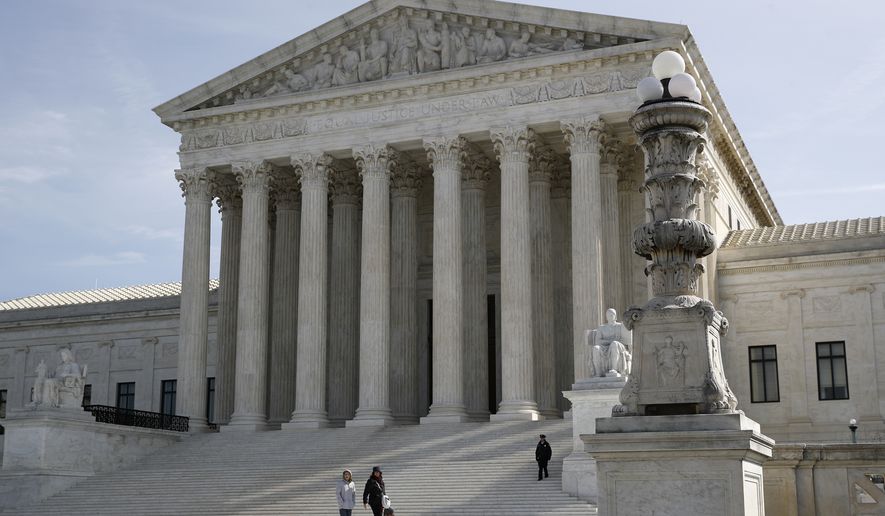Millions of Americans are working remotely — why can’t the Supreme Court?
According to a new poll, Americans want to see the court, which has been shuttered by the COVID-19 pandemic, back at work — remotely if need be — hearing oral arguments, including for highly watched cases concerning President Trump’s financial records.
In the PSB Research poll, 72% of Americans said the justices should hear oral arguments virtually and 61% want those arguments livestreamed, according to the Fix the Court, an advocacy group pushing for greater judicial transparency that commissioned the survey.
Just 13% opposed the high court hearing arguments remotely while 22% opposed the remote arguments being televised.
“A pandemic may sound like a good excuse for reducing the justices’ workload, but since the places we’re all stuck — at home, in front of our computers — have everything you’d need to keep hearing cases, that excuse falls short,” said Gabe Roth, executive director of Fix the Court.
His organization has been pushing for arguments at the high court to be livestreamed even before the pandemic halted proceedings. Some federal circuit courts have livestreamed audio and video of arguments in the past.
Though the Supreme Court does not stream live video or audio of its arguments, it does upload audio of each case hearing at the end of the week. Transcripts are also posted near the end of each day after oral arguments.
In an appearance in 2017, Justice Sonia Sotomayor suggested cameras in the courtroom could lead to more of a performance during the probing of lawyers rather than important legal questions getting explored.
The new survey follows a digital ad released Monday from Demand Justice, a liberal advocacy group, calling for Chief Justice John G. Roberts Jr. to reconvene the court to hear the case challenging the release of Mr. Trump’s tax returns and financial records.
The ad says, “Americans are working remotely. The Supreme Court should too.”
“If John Roberts wants to continue delaying the release of Donald Trump’s tax returns, he’s going to need a better excuse than not wanting to spring for a Zoom subscription,” said Brian Fallon, executive director of Demand Justice.
“Canceling in-person oral arguments was absolutely the right decision, but millions of Americans have figured out how to adjust to a public health emergency while completing time-sensitive tasks from home. Any delay from Roberts is about his desire to cover for Trump, not technical limitations,” added Mr. Fallon, who previously served as press secretary for Hillary Clinton’s 2016 campaign.
The push from advocacy groups comes after the high court twice postponed oral arguments due to the COVID-19 pandemic.
The justices may attempt to reschedule the cases, which were originally set to be argued in March and April, to be heard before the end of the term in June, according to a spokesperson from the high court. If that does not occur, other options will be explored.
Some of the most-eyed cases that were scheduled during that period were disputes over congressional authority to subpoena banking documents and other private financial records from Mr. Trump’s businesses, as well as a challenge over the validity of a subpoena out of New York to obtain the president’s tax returns.
Moving the hearings is quite rare, though it has happened in the past.
The court postponed arguments in 1918 during the Spanish flu epidemic. A court spokesperson also noted calendars at the court were changed in August 1793 and in 1798 over yellow fever.
Court staff is working remotely in some capacities to limit the number of people in the building, which has been closed to the public.
The PSB Research survey questioned 1,000 adults between March 26-27. The results have a margin of error of plus or minus 3.1%.
• Alex Swoyer can be reached at aswoyer@washingtontimes.com.




Please read our comment policy before commenting.